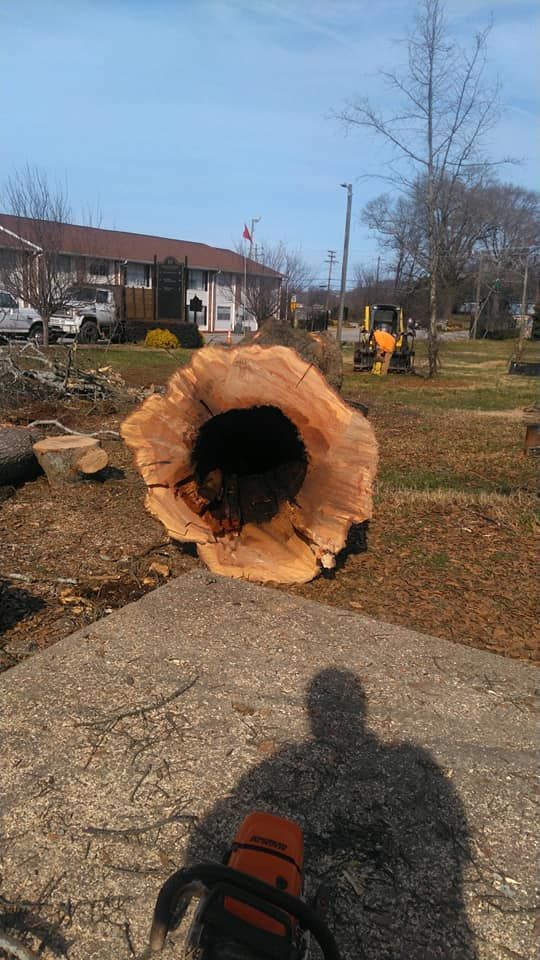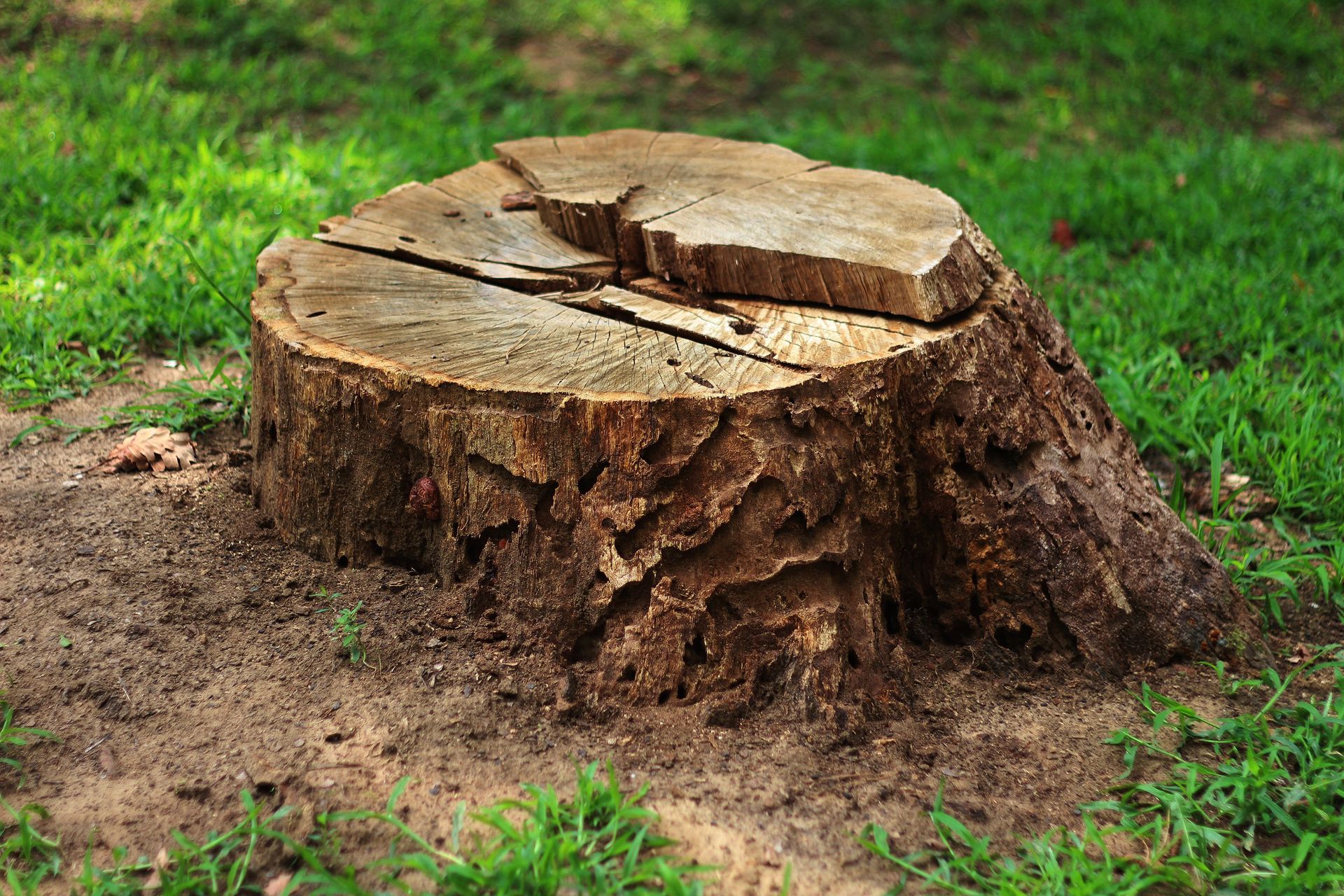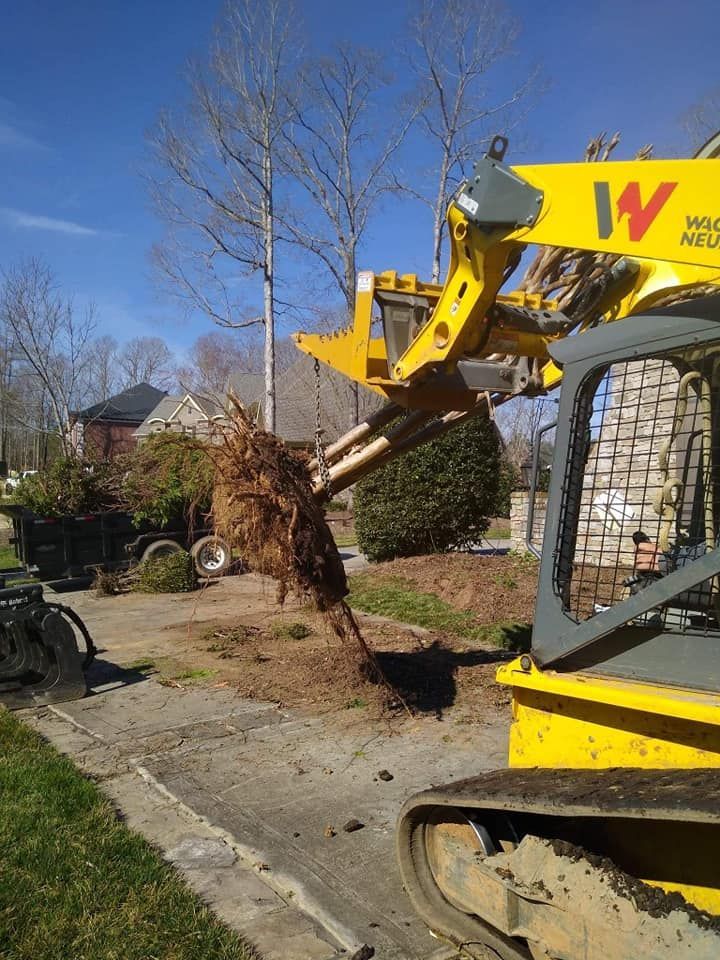Blog

Stump grinding is an evolving service, with new trends emerging each year. In 2024, homeowners in Waxhaw, NC, can expect to see some exciting developments in the way stumps are removed and the benefits that follow. Here’s a look at the top stump grinding trends for the year. 1. Eco-Friendly Stump Grinding Sustainability continues to be a major focus in 2024, with more companies adopting eco-friendly stump grinding practices. This includes using biodegradable lubricants in machinery and implementing methods that minimize soil disturbance. At Waxhaw Tree Service, we’re committed to offering environmentally conscious solutions that protect your property and the planet. 2. Advanced Machinery for Faster Results As technology advances, so does the equipment used in stump grinding. In 2024, expect to see more efficient and powerful grinders that can tackle even the toughest stumps in less time. These innovations not only speed up the process but also reduce the noise and disruption to your daily life. 3. Customized Grinding for Landscaping Projects More homeowners are recognizing the potential of stump grinding as a key step in their landscaping projects. Whether you’re planning to install a new garden, pool, or patio, customized stump grinding services can be tailored to your specific needs. This trend allows for better integration of new features into your landscape, ensuring a seamless and aesthetically pleasing result. 4. Increased Focus on Safety Safety remains a top priority in 2024, with more emphasis on protective measures during stump grinding. This includes better training for operators, enhanced safety gear, and stricter protocols to ensure that the grinding process is safe for both the crew and the homeowners. 5. Cost-Effective Stump Grinding Packages With the growing demand for stump grinding, companies are offering more competitive pricing and package deals. In 2024, homeowners in Waxhaw can take advantage of bundled services that include stump grinding along with other tree care services, providing greater value for your investment. Waxhaw Tree Service is at the forefront of these trends, offering cutting-edge stump grinding solutions that meet the needs of our customers. Contact us today to learn more about our services and how we can help you stay ahead of the curve in 2024.

After tree removal, you might be tempted to leave the stump behind, but this can lead to several issues down the road. Stump grinding is not just an option; it’s a necessity for maintaining the health, safety, and beauty of your Waxhaw, NC landscape. 1. Prevents Regrowth and Root Problems Even after a tree is cut down, the stump can continue to grow, leading to new shoots and potentially invasive roots. These roots can cause damage to nearby structures, sidewalks, and driveways. Stump grinding ensures that the tree won’t regenerate, protecting your property from future issues. 2. Avoids Attracting Pests Tree stumps are magnets for pests like termites, ants, and other wood-boring insects. These pests can quickly spread to healthy trees or even your home, causing extensive damage. By grinding the stump, you remove the source of attraction for these unwanted guests. 3. Prevents Fungal Growth and Diseases Old stumps can harbor fungi and diseases that may spread to other plants in your yard. Fungal growth not only looks unsightly but can also be harmful to the surrounding vegetation. Stump grinding eliminates this risk, helping you maintain a healthy garden. 4. Improves Landscaping Options A stump in your yard can limit your landscaping options. Whether you want to plant a new tree, create a flower bed, or install a patio, a leftover stump can get in the way. Grinding it down allows you to use your outdoor space more effectively and creatively. 5. Maintains Property Value Unaddressed stumps can detract from your property’s curb appeal, making it look unkempt and neglected. If you’re planning to sell your home, potential buyers may see this as a downside. Stump grinding helps maintain and even boost your property’s value by keeping the landscape in top condition. At Waxhaw Tree Service, we understand the importance of thorough stump removal. Our expert team is equipped to handle any stump, big or small, ensuring your yard remains safe, beautiful, and pest-free. Reach out to us today to schedule your stump grinding service.

When a tree is removed, the stump that remains can be more than just an eyesore. Stump grinding is an essential service that offers numerous benefits for your Waxhaw, NC property. Here’s why you should consider having those stumps professionally ground. 1. Enhances Aesthetic Appeal Stumps can detract from the overall beauty of your landscape. By removing them, your yard appears cleaner and more spacious. Whether you’re planning to replant or simply want a pristine lawn, stump grinding helps you achieve that polished look. 2. Prevents Pest Infestations Leftover stumps can become breeding grounds for pests like termites, ants, and beetles. These insects can eventually make their way to your home, causing further damage. Grinding the stump removes this potential habitat, reducing the risk of infestation. 3. Promotes Safety Stumps are tripping hazards, especially for children and the elderly. They can also be a problem when mowing the lawn or performing other yard maintenance. Stump grinding eliminates these risks, creating a safer environment for everyone. 4. Encourages Healthy Growth Old stumps can sprout new growth, leading to unwanted trees and shrubs that compete with other plants for nutrients. Grinding the stump ensures that these remnants don’t interfere with the healthy growth of your garden or lawn. 5. Increases Property Value A well-maintained yard with no unsightly stumps can enhance your property’s curb appeal and potentially increase its value. If you’re considering selling your home, stump grinding is a small investment that can yield significant returns. At Waxhaw Tree Service, we specialize in professional stump grinding that leaves your property looking its best. Contact us today to learn more about our services and how we can help you maintain a beautiful landscape.

Land grading is a crucial step in various construction and landscaping projects, but it's often an aspect that homeowners and property owners may not fully understand. In this blog, we'll shed light on land grading services, explaining what it involves, why it's essential, and how it can benefit your property. What Is Land Grading? Land grading, also known as land leveling, is the process of reshaping the contour or slope of the ground's surface. It involves the removal or redistribution of soil to create a smooth and even surface. This process is typically carried out using heavy machinery like bulldozers, graders, and excavators. Why Is Land Grading Important? Land grading serves various essential purposes, making it a crucial step in many projects: 1. Proper Drainage: One of the primary reasons for land grading is to ensure proper drainage. Grading helps direct water away from structures, preventing water accumulation that can lead to erosion, flooding, and damage to foundations. 2. Foundation Stability: Grading ensures that the ground beneath a building's foundation is level and compacted. This stability is vital to prevent settling, which can lead to structural issues over time. 3. Landscaping and Gardening: In landscaping and gardening projects, land grading creates a smooth canvas for planting, paving, or other design elements. It allows for the creation of level lawns, gardens, and outdoor spaces. 4. Road Construction: Land grading is a fundamental step in road construction, ensuring a level and stable surface for roads and highways. Proper grading improves road safety and durability. 5. Erosion Control: Grading can help control soil erosion by reshaping the land to prevent water runoff and soil loss. The Land Grading Process The land grading process typically involves the following steps: 1. Site Evaluation: Before grading begins, a thorough evaluation of the site is conducted. This assessment considers factors like the existing slope, soil composition, and drainage issues. 2. Planning: Based on the site evaluation, a grading plan is developed. This plan outlines the desired contour of the land and the specific grading activities required. 3. Clearing and Excavation: The site is cleared of any vegetation, debris, or obstacles. Excavators may remove excess soil or redistribute it to achieve the desired slope. 4. Rough Grading: During this phase, heavy equipment is used to reshape the land according to the grading plan. The goal is to create a rough, but mostly level, surface. 5. Fine Grading: Fine grading involves fine-tuning the surface to achieve the desired level of smoothness and precision. This phase may require more precise machinery or hand tools. 6. Compaction: Proper compaction of the graded surface is essential to ensure stability and prevent settling. 7. Drainage Solutions: Depending on the project, drainage solutions like swales, culverts, or retention basins may be added to manage water runoff effectively. Benefits of Professional Land Grading While some property owners may attempt DIY land grading, professional land grading offers several advantages: 1. Expertise: Professionals have the experience and knowledge to assess the site accurately and create a grading plan that meets your specific needs. 2. Equipment: Professional-grade equipment is essential for efficient and precise grading. Professionals have access to the right machinery for the job. 3. Time-Saving: Professionals can complete grading projects more quickly and efficiently than individuals without the necessary experience and equipment. 4. Compliance: In some cases, local regulations and permits may be required for land grading projects. Professionals are familiar with these requirements and can ensure compliance. 5. Long-Term Benefits: Properly graded land not only prevents immediate issues like flooding but also contributes to the long-term stability and value of your property. In conclusion, understanding land grading services is essential for anyone considering construction, landscaping, or property development projects. Whether you're building a new home, creating a garden, or improving your property's drainage, professional land grading can make a significant difference in the success and longevity of your project. If you're planning a project that involves land grading, consider consulting with experienced professionals to ensure the best results for your property.
